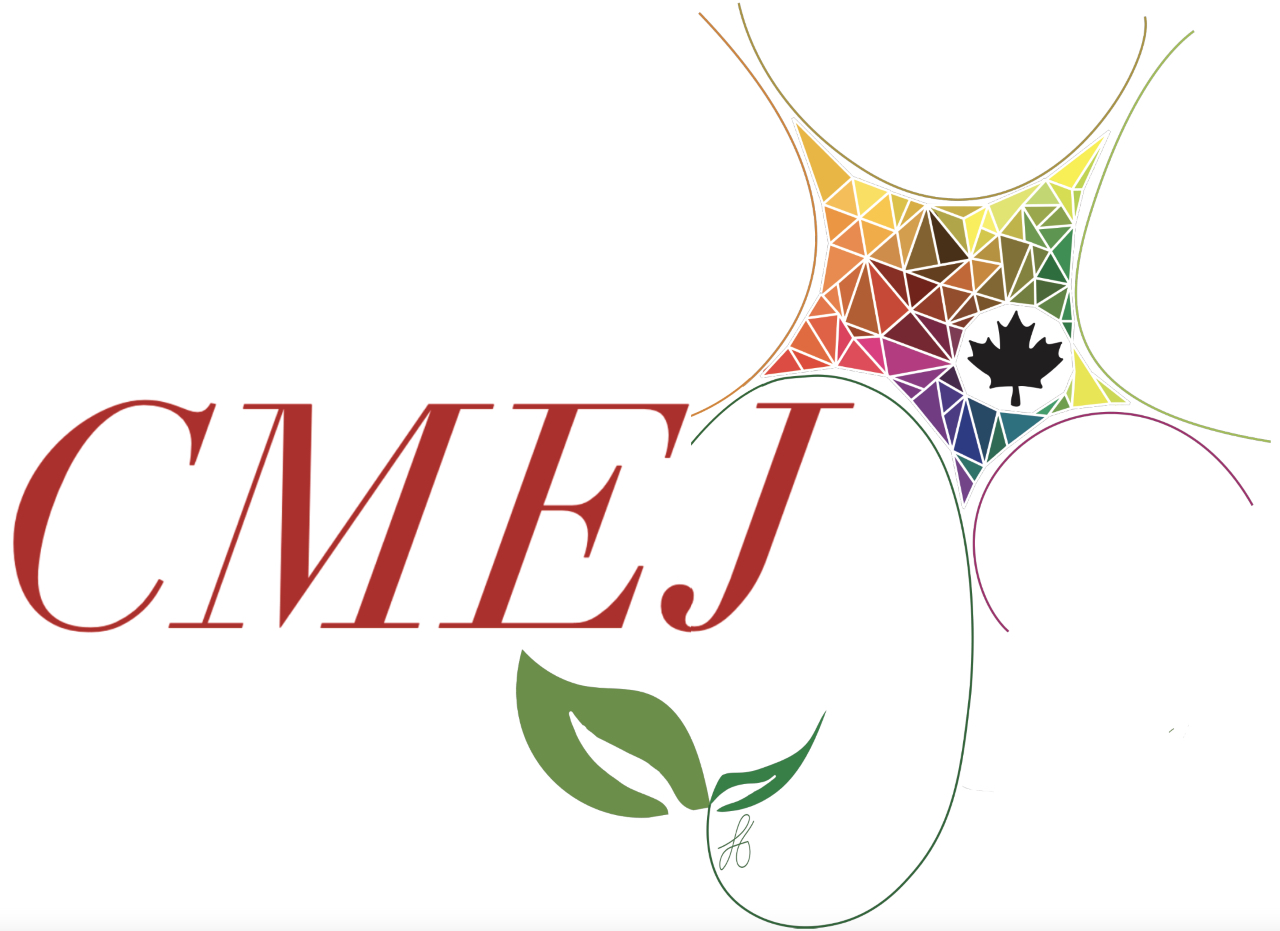Inclusive learning environments in medicine: a protocol on scoping what we know
DOI:
https://doi.org/10.36834/cmej.79360References
1. Gerull KM, Enata N, Welbeck AN, Aleem AW, Klein SE. Striving for inclusive excellence in the recruitment of diverse surgical residents during COVID-19. Acad Med. 2021;96(2), 210-212. https://doi.org/10.1097/ACM.0000000000003812
2. Barnabe C, Osei-Tutu K, Maniate JM, et al. Equity, diversity, inclusion, and social justice in CanMEDS 2025. Can Med Ed J. 2023;14(1), 27-32. https://doi.org/10.36834/cmej.75845
3. Osei-Tutu K, Duchesne N, Barnabe C, et al. Anti-racism in CanMEDS 2025. Can Med Educ J. 2023 Mar 21;14(1):33-40. https://doi.org/10.36834/cmej.75844
4. World Health Organization. Social determinants of health. Available from https://www.who.int/health-topics/social-determinants-of-health. [Accessed May 20, 2023]
5. Gomez LE, Bernet P. Diversity improves performance and outcomes. J Natl Med Assoc. 2019;111(4):383-92. https://doi.org/10.1016/j.jnma.2019.01.006
6. Butler PD, Fowler JC, Meer E, Rosen IM, Reyes IM, Berns JS. A blueprint for increasing ethnic and racial diversity in U.S. residency training programs. Acad Med. 2022;97(11), 1632-1636. https://doi.org/10.1097/ACM.0000000000004847.
7. Canadian Medical Association. Equity and diversity in medicine. Canadian Medical Association. December 2019. Available: https://policybase.cma.ca/viewer?file=%2Fmedia%2FPolicyPDF%2FPD20-02.pdf#page=1 [Accessed on DATE].
8. Crites K, Johnson J, Scott N, Shanks A. Increasing diversity in residency training programs. Cureus, 2022;14(6), e25962. https://doi.org/10.7759/cureus.25962
9. Hemal K, Reghunathan M, Newsom M, Davis,G, Gosman A. Diversity and inclusion: a review of effective initiatives in surgery. J Surg Ed. 2021;78(5), 1500-1515. https://doi.org/10.1016/j.jsurg.2021.03.010
10. Lai CJ, Jackson AV, Wheeler M, et al. A framework to promote equity in clinical clerkships. Clin Teach. 2020 Jun;17(3):298-304. Epub 2019 Sep 5. https://doi.org/10.1111/tct.13050
11. Davis K, Drey N, Gould D. What are scoping studies? A review of the nursing literature. Intern J Nurs Studies. 2009;46(10), 1386-1400. https://doi.org/10.1016/j.ijnurstu.2009.02.010
12. Arksey H, O'Malley L. Scoping studies: towards a methodological framework. Intern J Soc Res Methodol. 2005;8(1), 19-32. https://doi.org/10.1080/1364557032000119616
13. Levac D, Colquhoun H, O'Brien KK. Scoping studies: advancing the methodology. Implement Sci. 2010;5, 69. https://doi.org/10.1186/1748-5908-5-69
14. Braun V, Clarke V. Using thematic analysis in psychology. Qual Res Psychol. 2006;3(2):77-101. https://doi.org/10.1191/1478088706qp063oa
15. Tricco AC, Lillie E, Zarin W, et al. PRISMA Extension for Scoping Reviews (PRISMA-ScR): checklist and explanation. Annals Intern Med. 2018;169(7), 467-473. https://doi.org/10.7326/M18-0850
16. Thoma B, Abbott C, Snell L. The future of the CanMEDS physician competency framework. Can Med Educ J. 2023;14
Downloads
Published
How to Cite
Issue
Section
License
Copyright (c) 2025 Kenza Achtoutal, Linda Bergeron, Christina St-Onge, Tim Dubé, Isabelle Boulais

This work is licensed under a Creative Commons Attribution-NonCommercial-NoDerivatives 4.0 International License.
Submission of an original manuscript to the Canadian Medical Education Journal will be taken to mean that it represents original work not previously published, that it is not being considered elsewhere for publication. If accepted for publication, it will be published online and it will not be published elsewhere in the same form, for commercial purposes, in any language, without the consent of the publisher.
Authors who publish in the Canadian Medical Education Journal agree to release their articles under the Creative Commons Attribution-Noncommercial-No Derivative Works 4.0 Canada Licence. This licence allows anyone to copy and distribute the article for non-commercial purposes provided that appropriate attribution is given. For details of the rights an author grants users of their work, please see the licence summary and the full licence.










